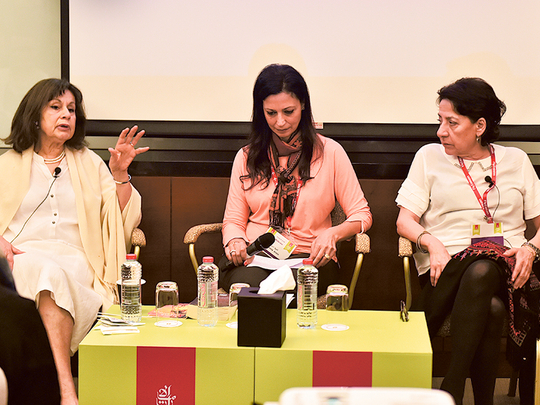
Dubai: Hoda Barakat and Ghada Karmi, two authors who have found themselves living outside their homelands, discussed how displacement has shaped their writing and their views of the world at the Emirates Airline Festival of Literature on Thursday.
The session, entitled ‘Exiled, Displaced and Still Writing’, took place in the Intercontinental Hotel at Festival City in Dubai.
Lebanese novelist Hoda Barakat, who is the recipient of the prestigious Naguib Mahfouz Medal for Literature, has had her works translated into a number of languages, including English, Hebrew, and French. Barakat, who now resides in Paris, said that her story of exile was a multilayered narrative.
“First, there is the exile I feel as a woman, then there was the exile I felt while still living in Lebanon, finding no compassion existing between the disparate groups, and, finally, when I left the country,” she said, adding that the third type of exile had a liberating side to it, as she finally felt relieved of social pressures.
She said that after she moved to France she found it was much easier to write in French, but at the same time felt that the Arabic language was all she retained of her Arab identity.
Palestinian author and academic Ghada Karmi writes frequently on Palestinian issues. She is also a doctor of medicine. Her books, which include the autobiography ‘In Search of Fatima: A Palestinian Story’, have all been written in English.
“I was brought up in the UK since I was a child,” she said. “In fact, the only reason I learnt Arabic is thanks to my mother, who refused to learn English, calling it the language of the people that took our homes.”
Karmi said she found it necessary to write her works in English because she wanted to address them to the forces that colonised her land.
“Even today, colonialism still has a strong presence in people’s mind,” she said. “Oppressing powers are usually seen as superior; their language, better. Across the Levant, you find parents name their children with English and French names.”
Karmi said it was important to pinpoint the effects of colonialism inside the mental space, and try to purge it.







